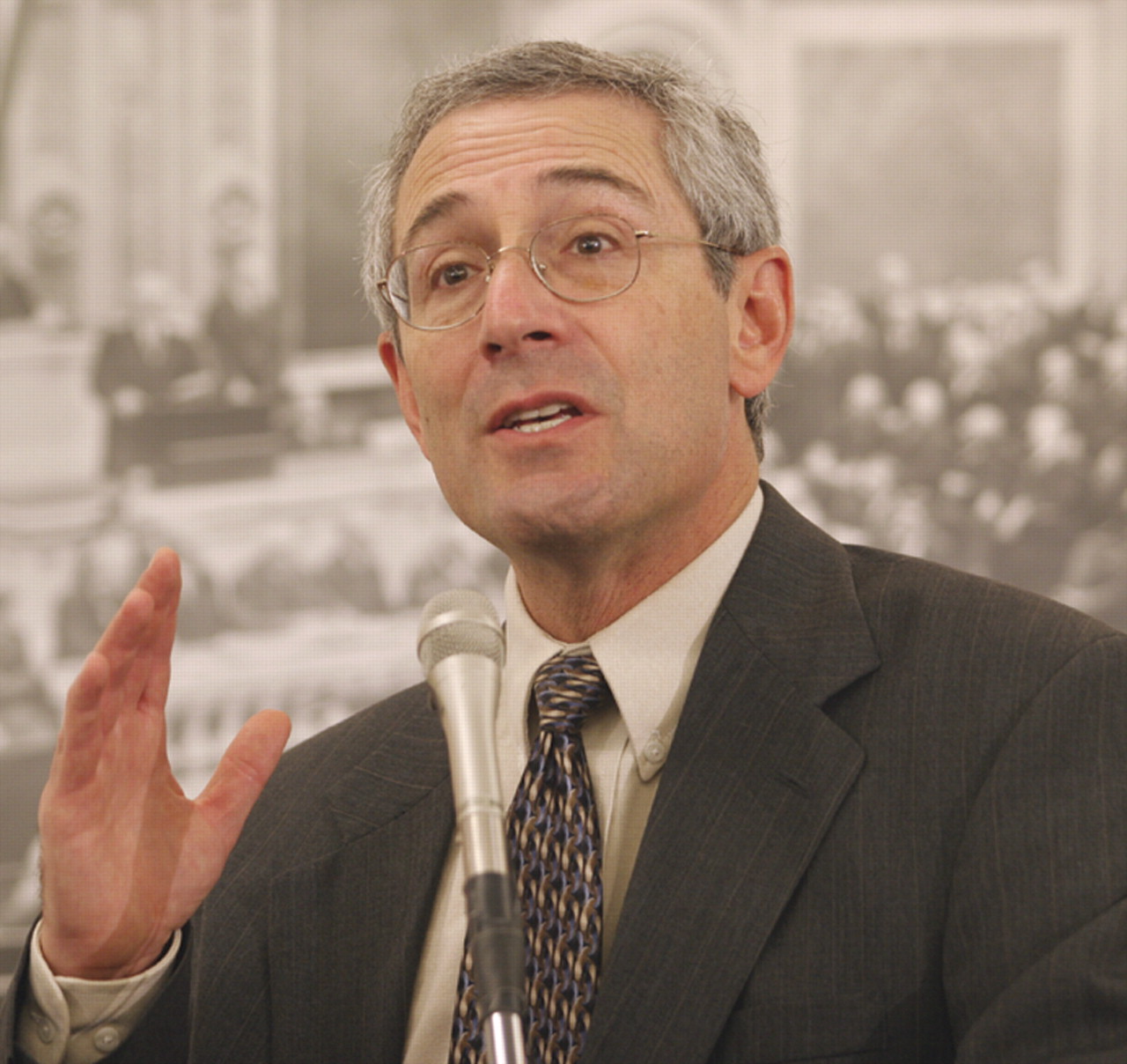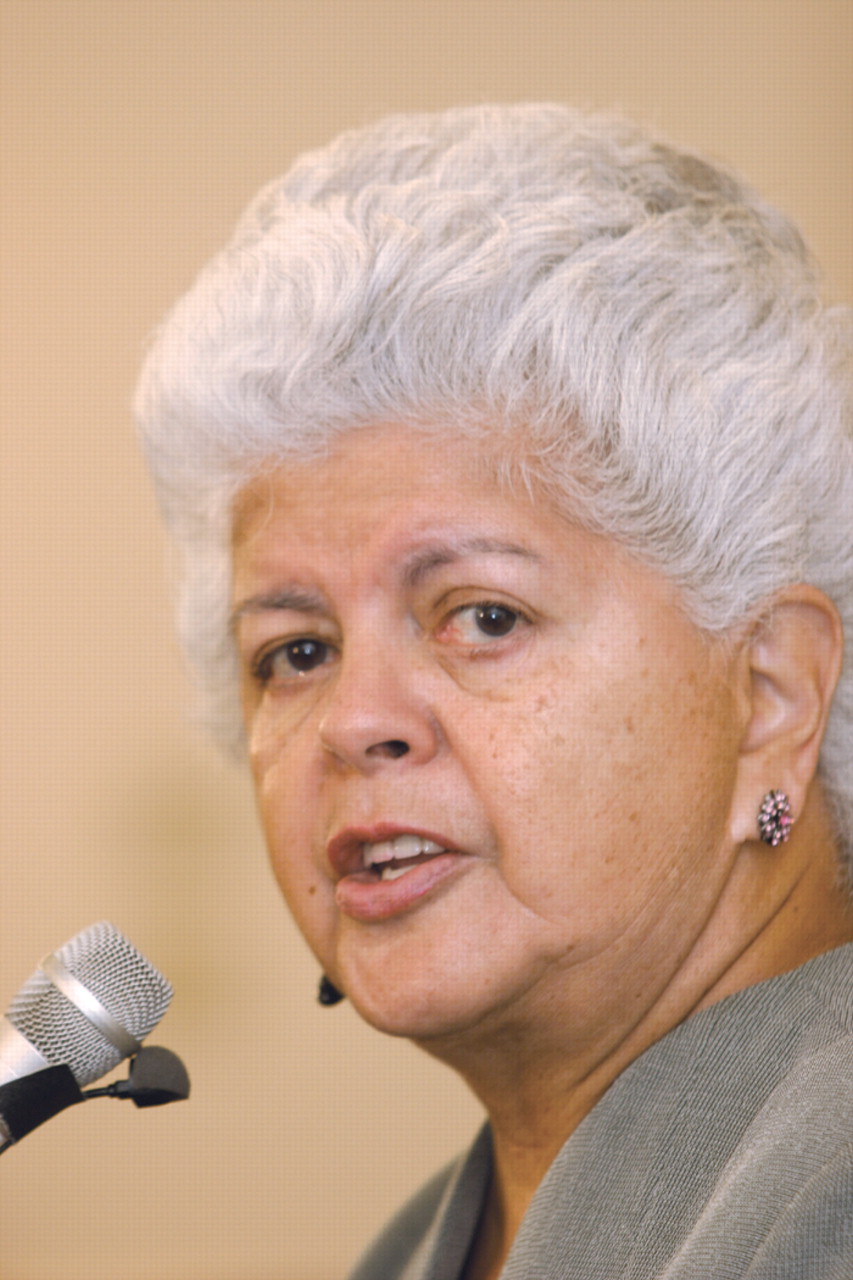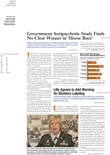Policymakers and clinical psychiatrists told members of Congress and their legislative aides that they have gleaned valuable insights on mental health care from both Hurricane Katrina and the war in Iraq, but they continue to search for answers to many more questions.
Their comments came during a Mental Illness Awareness Week symposium sponsored by APA and the National Alliance for the Mentally Ill (NAMI) on Capitol Hill on September 22. Among the approximately 100 attendees were Reps. Grace Napolitano (D-Calif.), Patrick Kennedy (D-R.I.), Dutch Ruppersberger (D-Md.), and Howard Coble (R-N.C.), as well as staff from several congressional offices.
“It was important to have a psychiatrist available in the emergency hospital we had set up, because even one person having a psychotic episode could have an extremely disruptive effect on the entire emergency room and prevent emergency workers from treating a lot of other conditions,” said David Post, M.D., medical director of the Capital Area Human Services District in Baton Rouge, La.
Post, an invited speaker at the symposium, helped set up a field hospital at Louisiana State University to treat survivors of Hurricane Katrina. He said he took the time from ongoing relief efforts to travel to Washington, D.C., and tell lawmakers about the importance of mental health treatment for the hurricane survivors.
In the aftermath of such natural disasters, Post said, it is critical to get patients with mental illness back on their medications and into treatment as quickly as possible. Otherwise, they are easily “lost in the shelters and fall off treatment.”
Post told the legislators and aides that in the future Federal Emergency Management Agency (FEMA) Disaster Medical Assistance Teams (DMAT) need to include a psychiatric component to provide better care for survivors not only in the immediate aftermath, but in the following weeks as well.
“Physician psychiatrists are needed on these teams, even now,” Post said, speaking more than three weeks after Hurricane Katrina struck.
Another speaker, Harold Ginzburg, M.D., had his home and practice destroyed by Hurricane Katrina and had not heard from most of his patients (Psychiatric News, October 7). Since the storm, Ginzburg, the disaster-response director for the Louisiana Psychiatric Medical Association, has provided mental health treatment in several rural and small-town settings in Mississippi and Louisiana that received large numbers of survivors in the hurricane's wake.
Ginzburg said that federal policymakers could improve the health care response to future disasters by dropping state Medicaid limitations, providing Good Samaritan insurance coverage—blanket liability protection for volunteer physicians—and recognizing medical licenses from other states within disaster-affected areas.
Ginzburg said his work with emergency responders before and after the hurricane showed the importance of providing priority support to first responders and their families.
“The New Orleans police officers who left their jobs had to go and care for their families because the department had no support network for them,” Ginzburg said.
For future disasters, he said, disaster-response planners could take basic steps to improve their response. These include providing“ interventions” for mental health workers; allowing survivors to grieve without diagnosing them or using labels; improving cooperation between locals and out-of-area relief workers, since neither can operate in a vacuum; and making displaced people self-reliant, even in small ways.
Napolitano said federal emergency officials need to ensure that mental health services are provided in multiple languages, to improve their effectiveness. She said many of those displaced by Hurricane Katrina, for example, were low-income immigrants whose first language is Spanish.
NAMI Executive Director Michael Fitzpatrick said disaster planners need to improve the housing options for survivors and move them out of shelters as soon as possible.
He urged federal officials to build more flexibility into how FEMA funds are used, so they could more easily be used to assist those with mental health needs and speed their access to mental health services.
“The mental health systems that are bearing the burden of this disaster were already under tremendous pressure before the storm,” Fitzpatrick said. “Services in areas not immediately affected were already fragile and now need support.”
Col. E. Cameron Ritchie, M.C., a psychiatry consultant to the Army surgeon general, said the military has also learned mental health lessons from its experiences in the war in Iraq (see story below).
Thomas Insel, M.D., director of the National Institute of Mental Health, said the mental health response to Hurricane Katrina was complicated by the realization that many of the survivors were already dealing with some degree of posttraumatic stress disorder (PTSD) before the disaster. He noted that since the Oklahoma City federal-building attack, mental health officials have recognized that PTSD not only affects those in combat but also those traumatized by natural and other disasters.
“For many of these people, trauma was a part of their lives before the disaster,” he said. “We're in the midst of trying to figure out how best to respond to that.”
Insel said that health officials will struggle in the coming months to identify those who will develop PTSD, which he described as a failure to recover from stressful events. Psychiatrists and mental health practitioners, he said, generally don't diagnose people with PTSD until they come in for treatment of secondary problems, such as alcohol abuse.
Additional information on the symposium is posted at<www.psych.org/news_room/press_releases/miawcongressionalluncheon2005.pdf> . ▪


